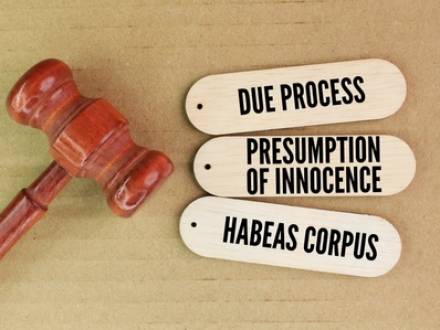Understanding 11.07 Writs of Habeas Corpus in Texas
 Anyone who has ever been arrested and convicted for a crime they did not commit or who has had a loved one in this situation knows the sadness, frustration, anger, and desperation it can cause. Perhaps appeals were made, but they were denied, and you or a loved one is sent to prison. What can you do? Is there any recourse for such an untenable situation?
Anyone who has ever been arrested and convicted for a crime they did not commit or who has had a loved one in this situation knows the sadness, frustration, anger, and desperation it can cause. Perhaps appeals were made, but they were denied, and you or a loved one is sent to prison. What can you do? Is there any recourse for such an untenable situation?
You may or may not have heard of a writ of habeas corpus. There are different types of these writs, but they all focus on post-conviction relief in the form of overturning a wrongful conviction. While a writ of habeas corpus is often confused with an appeal, an appeal can only make arguments based on trial errors and must be filed immediately following the trial and conviction.
Generally speaking, a writ of habeas corpus allows a person convicted of a crime to present new evidence that was not considered at trial or to argue ineffective assistance of counsel. If you feel you or a loved one could be eligible for an 11.07 writ of habeas corpus, speak to an experienced Dallas, TX writs lawyer.
What is an 11.07 Writ of Habeas Corpus?
Specifically, an 11.07 writ of habeas corpus is used for a person who has been convicted of a felony, sentenced to prison time with no probation, and has not been given the death penalty. An 11.09 writ of habeas corpus is for those who were sentenced to jail on a misdemeanor conviction, and an 11.072 is for those given probation on a misdemeanor or felony conviction or a deferred adjudication.
How Does an 11.07 Writ of Habeas Corpus Differ from Other Types of Writs?
Every type of habeas corpus writ has specific instructions and rules. An 11.07 writ can only be denied or granted by the Texas Court of Criminal Appeals. The original trial court will review the writ and make recommendations, but it does not have the ability to approve or deny it. In an 11.072 writ, the trial court does have the ability to approve or deny the writ.
What Does Ineffective Assistance of Counsel Mean?
An ineffective assistance of counsel (IAC) writ claim says that the person who was convicted received ineffective assistance from his or her defense lawyer. Proving an IAC claim involves showing that the attorney's representation fell below an objective standard of reasonableness. It also involves a claim (with proof) that it is reasonable to believe that the outcome of the trial would have been different if the defendant had received competent counsel from his or her attorney.
The defense attorney must then file an affidavit, responding to the claims when the record before the court is not sufficient to resolve the IAC claim, when the claim defeats the attorney-client privilege, or when the State is unable to supplement the record sufficiently to resolve an IAC claim.
It may be better to obtain an order from the court that establishes a deadline, makes options like Show Cause Orders available, and establishes what the defense attorney must produce. The person filing the 11.07 writ of habeas corpus has the burden of proof, whether the claim is IAC or to introduce evidence that was not incorporated into the original trial.
What Else You Should Know About 11.07 Writs of Habeas Corpus
An 11.07 writ of habeas corpus must identify the applicant and the person "restraining" the applicant, who is usually the prison warden. The petition must clearly identify why the current incarceration is not lawful, including coherent and compelling facts that are persuasive to the court.
In some cases, a separate memorandum of law is attached to the petition for a writ of habeas corpus to identify legal authorities who support the petition. The memorandum of law may not exceed 15,000 typed words or 50 handwritten pages.
Contact a Montgomery County, TX Writs Attorney
If you believe you or a loved one is eligible for an 11.07 writ of habeas corpus, speaking to a Conroe, TX writs attorney from Pullan & Young can be extremely beneficial. Attorney Pullan was a former Assistant District Attorney, while Attorney Young is a former prosecutor. This experience benefits their criminal law clients. Call 936-647-1540 to schedule your free consultation.







